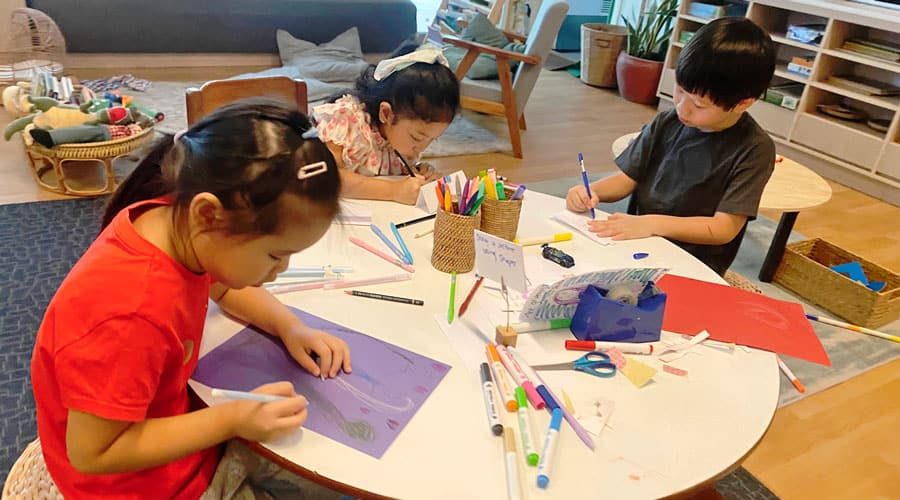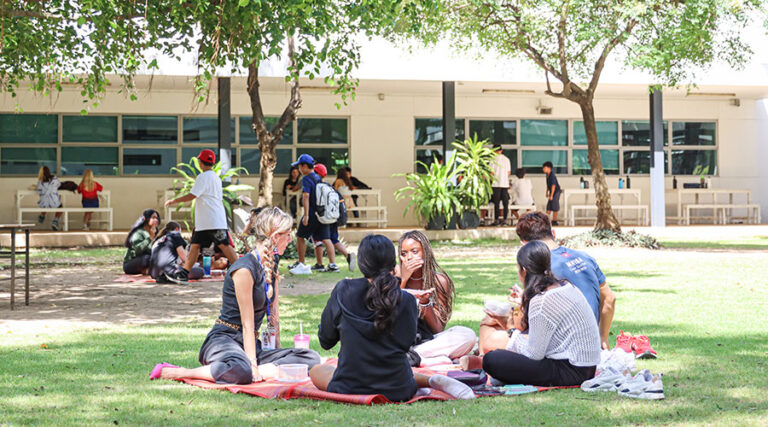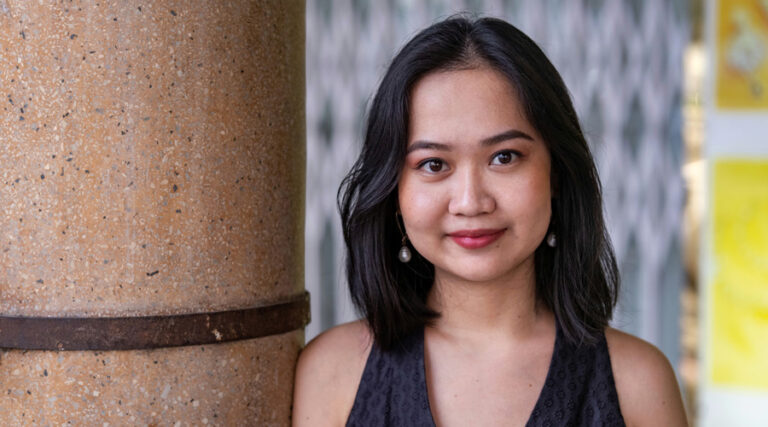How could we support children’s sense of identity as writers in the Early Years?
This is a question the Early Years (EY) teachers wanted to undertake and explore. With the help of Matt Glover and his expert research and advice, we have come to new understandings and changes in our teaching practice.
Matt’s workshops and the book “Engaging Young Writers” were valuable resources in this endeavour. We were able to identify new ways of thinking about children’s writing and how to support them to see themselves as competent writers. The research we did was complex and thought-provoking.
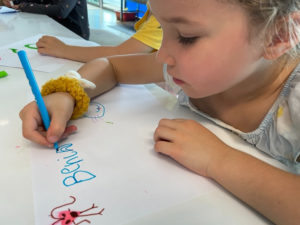
In a simple summary, these are the new learnings we have applied in our classrooms:
Don’t write for children
A child might ask “I can’t write it – can you write it for me?” It’s important that we encourage children to try themselves – even if it’s squiggles, shapes, random letter formations or letters. As long as children know their marks symbolise what they want to say, it is meaningful for them. They will develop the agency and confidence to write themselves. If adults do this for them, all they learn is they can’t do it as well as us.
Point out things that we notice in books
An example would be “Mo Willems uses speech bubbles so we can see what Piggie is saying.” We have used nonfiction and fiction books to point out craft techniques authors use and children have started to notice and experiment with these in their writing.
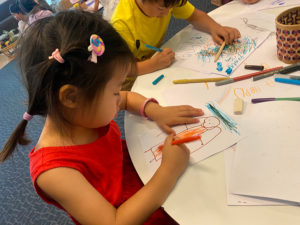
Show approximations to help children see what their writing could look like
If we always show children examples of printed books, they may think they could never reach that level. When showing them examples of other children’s writing they can more easily see themselves as capable.
Little nudges, not pushes
When conferring with children, we look at where they are at and how we could nudge them a little further. Too far and they may become unmotivated. Good questions to ask are: “What will happen on the next page?” and “You could write a book about that!” whenever there is an opportunity. We also find out what motivates children, and what their interests are and find an entry point into writing through that, so it will be different for each child!
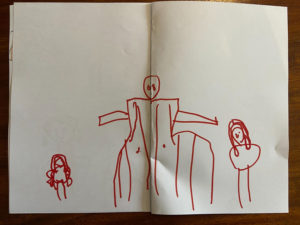
After adding these aspects to our teaching we saw a surge of confidence and enjoyment of writing in our classes. The children have engaged in joyful writing, being motivated internally through their interests. They like to explore story and information books and have tried out so many beautiful things they have noticed in books, which include author’s craft techniques such as question marks, speech bubbles, zooming in, big and small writing and adding emotions to drawings, plus so much more.
We have seen the true meaning of seeing children as capable so they will see themselves that way too. Our EY centre has become rich in its love for books, reading and writing with a true celebration of where children are at in their writing without the pressure.
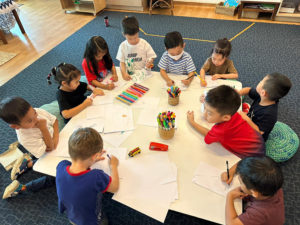
Bonnie Jensen
Early Years Teacher
